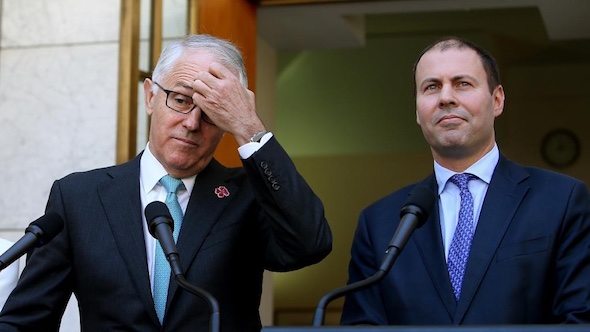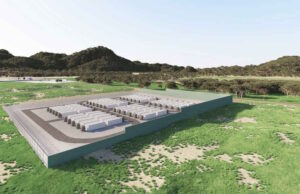 The Turnbull government’s proposed National Energy Guarantee would fail in almost all of its stated goals – including its core goal of boosting power system reliability – and would only benefit the owners of coal fired power generators, a new report has found.
The Turnbull government’s proposed National Energy Guarantee would fail in almost all of its stated goals – including its core goal of boosting power system reliability – and would only benefit the owners of coal fired power generators, a new report has found.
In a stinging critique of the NEG prepared for the Australian Conservation Foundation, energy economics consultancy CME says the NEG – the detail of which remains scant – would deliver an inefficient and opaque electricity market that deliberately hides emission prices and undermines competition in wholesale and retail markets.
The report – co-authored by CME director Bruce Mountain, who has been vocal in his concerns about the NEG – also argues that the policy would deliver outcomes to protect coal generators from competition from increasingly cheap wind, solar and battery storage.
The “ultimate cost” of this inefficiency, the report warns, “will be borne by consumers in the form of higher electricity prices, in emission reductions that are more expensive and in a less secure power system.”
It is on this last point, system security, that the report is perhaps the most dismissive. Rather than delivering on the core Turnbull government promise of improved NEM reliability, CME says that the NEG will instead undermine it, “by introducing needless complexity and bureaucracy.”
As the report notes, the NEG proposes to boost power system security by making retailers individually and collectively liable for – that is, requiring them to buy “slow start” and “fast start” generation.
“This is a change from the existing situation where AEMO procures such services directly from generators (occasionally) or (mainly) through frequency control ancillary services markets where generators compete to meet demand that AEMO determines,” the report says.
“The implementation of the NEG’s dispatchability obligation will therefore require AEMO to procure the slow and fast start services it needs, not from the producers of such services – batteries, flexible demand and generators – but from retailers who in turn are required to procure such capacity.
“In effect the NEG imposes another layer of market participant – the retailers – between the producers of power system services (generators, batteries and flexible demand) and the customer of those power system services (AEMO). This serves no useful purpose.
“To the contrary, it will massively increase complexity and undermine AEMO’s ability to efficiently procure the services it needs to operate the power system,” the report continues.
“AEMO should be buying these services directly from the entities that supply them, not from passive intermediaries who themselves have no expertise (or interest) in procuring the most efficient or effective forms of “slow start” and “fast start” capacity.
“It can be no surprise that this approach has no precedent in any power system anywhere, ever.”
The following is a collection of key quotes taken from the CME report.
On market competition:
The NEG “will have a seriously detrimental effect on the competitiveness of wholesale and retail electricity markets,” the report says, by undermining entrant retailers who do not own or control the production that they sell, while at the same time “providing a competitive advantage to the dominant incumbent retailers who already control the majority of generation capacity in the NEM.” It will also undermine competition by discouraging merchant generation.
On coal:
“While the NEG will not necessarily delay coal generation closure relative to ‘business as usual’, it would be naïve to be blind to the government’s policy to prevent the closure of existing coal generation, when assessing the NEG. Indeed a plausible explanation for the dispatchable generation obligation is to secure the market for coal generators by securing a regulated income stream in the form of mandatory obligations on retailers to procure slow and fast start capacity from them.”
On emissions:
“We do not believe that the NEG will establish an effective market in emission reduction. The stated purpose of the policy is to not establish a price on emissions. The absence of an emission price, makes it harder for buyers and sellers to find each other and to find prices that they are willing to trade at. The resulting transaction costs and illiquidity undermines operational and investment efficiency.
“This makes the task of emission reduction more costly than it would be if mechanisms were designed with the intention of ensuring an efficient and transparent market. While customers are the common losers from this approach, it does nonetheless provide a relative advantage for incumbent vertically integrated producers relative to smaller new entrant generators and retailers.”
On renewables investment:
Will the NEG promote renewable investment? “The answer to this question … is surely not. The NEG sets out to deliver an inefficient and opaque market that hides emission prices. This will undermine competition in wholesale and retail markets and by definition this reduces investment efficiency.”








